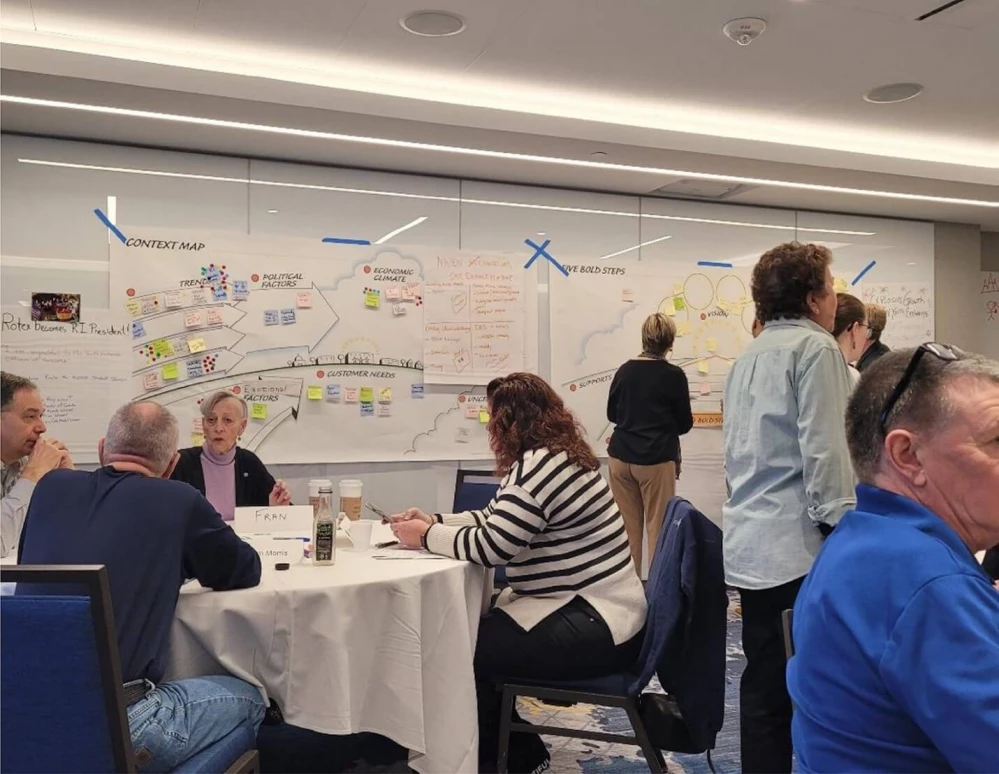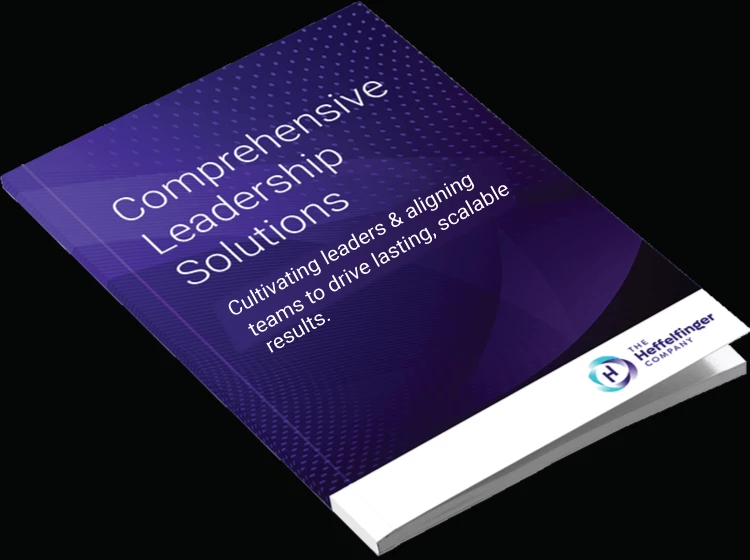As we start 2023, it’s hard to believe that many organizations are still reeling from the pandemic. Supply chain problems or hiring seem to be constant issues. Just as we learn to live with one version of the pandemic, a new version comes through.
You’re not alone if you feel a little unsteady. How do leaders and teams deal with this constant change?
The past two years have illuminated one key lesson: organizations that want to survive and thrive must be able to continuously and effectively adapt in an increasingly Volatile, Unpredictable, Complex, and Ambiguous (VUCA) environment.
If you’re still waiting for things to return to normal, you're doing your company a disservice. It is time to become fully Adaptive Leaders so that you can handle any new reality that comes your way, not just adapt to the current reality.
What is Adaptive Leadership?
We’ve shared a bit about Adaptive Leadership in our blog, but it’s worth explaining again. Essentially, we break it down into four different parts.
1. Diagnosing Then Acting
All organizations and leaders have felt the panic that can occur when something changes unexpectedly. Often, this emotional response will lead to a hasty decision. While it’s essential to act quickly in some instances, it’s more important to ensure that you’ve appropriately diagnosed what is happening.
Leaders are praised for their actions. Evaluation is a skill that is often overlooked because it is usually done behind the scenes and does not get much attention or notoriety. However, it’s the key element to taking action that is effective and worthy of praise instead of just acting for the sake of wanting to do something.
Adaptive challenges require "people give up things they hold dear: daily habits, loyalties, ways of thinking. In return for these sacrifices, they will be offered nothing more than the possibility of a better future." ~ Heifetz & Linsky
2. Navigating and Tackling Adaptive Challenges
When it comes to the challenges that modern businesses face, they’re often more complex than you might initially imagine.
Let’s take, for example, the growing idea of implementing hybrid work. You may think of this as an HR problem - You find out how your employees think and feel about it, and you base the decision just on the needs of the individual.
However, this change has ripple effects elsewhere in the organization. Hybrid work may change how you interact with customers, suppliers, departments, and teams. Instead of looking at a problem from one perspective, you must acknowledge how it will show up in other areas of the organization.
Once that has been understood, the next step is to ensure that the people with the challenge are the ones fixing it. You could bring in an outside organization to tell you what to do or just rely on the decision-making skills of managers; however, with such a diverse group of stakeholders, you’ll benefit more from getting everyone involved.
"If you want to be successful, you need to evolve. You either change and survive or you “die” in your comfort zone." ~ Robert Quinn
3. Valuing Diversity and Engaging Diverse Views
As you may have deduced from how complex and far-reaching adaptive problems can be, you need to reach out to a wide range of people with different viewpoints and priorities to understand the appropriate solutions fully.
Every stakeholder shares some responsibility for the organization's future, and they all get to play a part. Their collective voices make up the inner voice of the organization. That voice can’t just come from top leadership or even one CEO. That voice needs the various layers and complexity that only a diverse group can bring. Valuing Diversity means ensuring all voices are represented. As in the earlier example of Hybrid work - the impact of Returning to the Office policies, Virtual First policies, and Hybrid policies have differing impacts on different demographics that could be missed if representative voices are not included in the planning.
Adaptive Leadership takes immense courage and conviction to see the whole, to see systems, to see what others might not see from their various vantage points, to be open to the unknown, to tap the wisdom beyond one’s experience, and perhaps even comprehension. In essence, to be vulnerable.
“Diversity: the art of thinking independently together.” ~ Malcolm Forbes
4. Embracing Discomfort
Change is uncomfortable. That’s often a reason leaders and organizations are too quick to act. They want that discomfort to disappear as soon as possible before they’ve even acknowledged the actual source or the best solution.
In fact, when we avoid the discomfort of change, we put our organizations on the road of slow death.
Transformational change requires what Robert Quinn calls “Deep Change.” This type of change requires continuous learning, self-reflection, and the desire to change, no matter how hard it is. Individuals must dig deep within themselves to find the capacity for this type of change.
Deep change requires new ways of thinking and being. It is significant in scope, discontinuous from the past, and usually irreversible. It distorts existing patterns of action and involves taking risks. It means surrendering control.
“We need to cultivate the courage to be uncomfortable and to teach the people around us how to accept discomfort as a part of growth.” ~ Brené Brown
Time For Your Transformational Change
Now that you understand a bit more about what Adaptive Leadership looks like and how it can play out at your organization, you have a chance to embrace the discomfort and come up with a solution that considers the problem's truly complex nature.
If you need a guide along the way, we’d be happy to help. Reach out to us to get started.
Warmly,
Lori and James
Lori Heffelfinger and James Jackman







